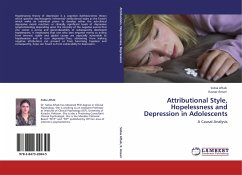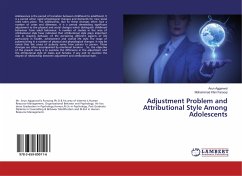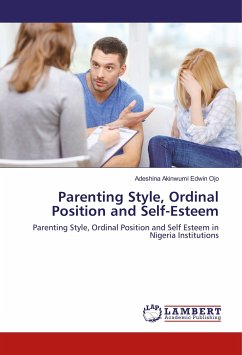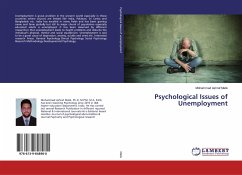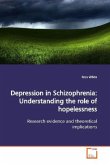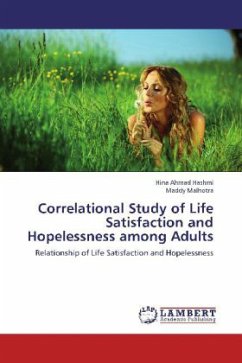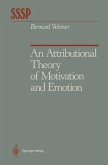Hopelessness theory of depression is a cognitive diathesis-stress theory which specifies depressogenic inferential/ attributional styles as the factors which make an individual prone to develop either the sub-clinical depressive mood reactions or clinically significant levels of depressive symptomatology depending upon the intensity of the negative events that one comes a across and generalizeability of subsequently developed hopelessness. It emphasizes that one who sees negative events as arising from internal, stable and global causes are especially vulnerable to hopelessness and in turn depression.Thus, abstaining from making negative attributions can prevent us from becoming hopeless and consequently, hope can hoard us from vulnerability to depression.
Bitte wählen Sie Ihr Anliegen aus.
Rechnungen
Retourenschein anfordern
Bestellstatus
Storno

